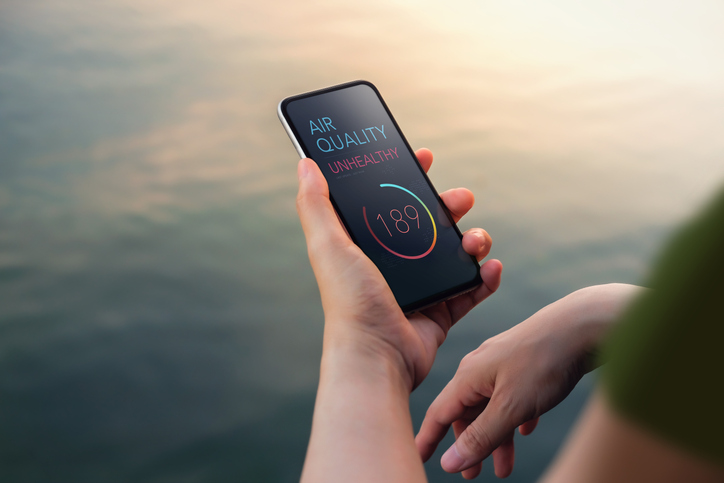Sports medicine and rehabilitation help athletes prepare for the spring season by improving...
Read More

This week, you may have noticed an air quality alert pop up on your phone or computer. Cities and townships across the Northeast — including those in South Jersey — are experiencing an elevated air quality index due to forest fires in Canada. But many of us do not fully understand what these air quality alerts mean, and why they are important to pay attention to. How can air quality affect our bodies? What should people do when there's an air quality alert, and who is at high risk of being affected by air quality? Here’s what you need to know, and how to protect yourself.
In 1999, the United States Environmental Protection Agency (EPA) created the Air Quality Index (AQI) to measure and report on the amount of pollutants in the air on a day-to-day basis. The Clean Air Act of 1970 identified the five major pollutants in the air the AQI measures:
“The AQI measures the amount of pollutants in the air from 0-500, with anything under 100 considered satisfactory in terms of air quality while anything over 100 causes concern and alert,” said Raleke Adibe, D.O., Physician at Inspira Primary Care Somerdale.
The AQI is a vital tool in warning residents about conditions that may impact their health. Now, AQI reporting is available at our fingertips via color-coded smartphone alerts.
Air quality alerts mirror much of what we learned throughout our childhood: green means go, yellow or orange means slow down and red tells us to stop. When a code red air quality alert is sent out, that means air pollution concentrations are unhealthy for the general population and outdoor activity should be avoided.
Research on how air pollution impacts our bodies evolves every year, with a growing list of short-and long-term effects.
Short-term effects of bad air quality include:
Long-term effects of air pollution can last for months, years or become a lifelong struggle. They include:
“When the index hits 101 or above, the outdoor air may not be an active threat to many people but older adults and children are at increased risk,” said Dr. Adibe. “People with heart and lung disease may also be at greater risk.”
Depending on the severity of the pollution or the type of event, air quality can remain unhealthy for extended periods of time. In order to stay healthy when a code red is issued and for at-risk populations if a code orange/yellow is issued:
If you are concerned about the health risks associated with air pollution, consult your health care provider.
Inspira Health is a high reliability organization (HRO), which means safety is the top priority for patients and staff. To make an appointment, call 1-800-INSPIRA.

Sports medicine and rehabilitation help athletes prepare for the spring season by improving...
Read More
Specialty doctors provide expert care for specific health concerns, ranging from ear, nose and...
Read More
Preventive health practices like regular exercise, balanced nutrition, routine screenings and stress...
Read More
The material set forth in this site in no way seeks to diagnose or treat illness or to serve as a substitute for professional medical care. Please speak with your health care provider if you have a health concern or if you are considering adopting any exercise program or dietary guidelines. For permission to reprint any portion of this website or to be removed from a notification list, please contact us at (856) 537-6772